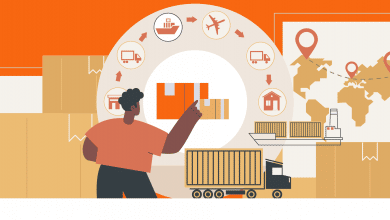The Rise and Fall of FBA Aggregators
What Happened with the Roll-up Collapse and Who is Still Around?

During the unprecedented e-commerce boom from 2020 to 2022, fueled by the COVID-19 pandemic, a new trend emerged in the world of online retail – the rise of Fulfillment by Amazon (FBA) Aggregators.
Remember when companies like Thrasio were snapping up Amazon businesses left and right? Well, things have taken a turn since 2023.
Related Reading: The Complete List of Amazon FBA Aggregators
The Rise of FBA Aggregators
In the heyday of the pandemic, when our shopping habits shifted overwhelmingly online, FBA Aggregators emerged.
Their strategy was acquiring multiple small but successful Amazon-based businesses and unifying them under a single, more efficient, scalable operation. It was like watching a fast-paced race, with companies like Thrasio quickly buying up one business after another, attracting significant investor interest, and achieving rapid growth.

FBA Aggregators Post-Pandemic in 2022
In 2022, despite COVID-19 not being completely over, people began returning to physical stores, leading to varied reactions among FBA aggregators.
Companies like Razor Group and Flummox aggressively acquired businesses, while others like Boopos and Forum Brands shifted towards more selective strategies. Some aggregators slowed down their acquisitions, yet the overall sentiment about the future of FBA businesses remained optimistic.
Firms like Branded adapted by focusing more on product launches rather than mergers and acquisitions, reflecting the changing ecommerce landscape post-COVID in 2022.
FBA Aggregators Podcast Series
Between 2020 and 2021, aggregators were acquiring FBA businesses left and right that EcomCrew made a podcast series about it. If you want to learn more about FBA aggregators and how you can sell your business for top dollar, here are some episodes you can listen to:- E430: Dirty Tricks Amazon Aggregators Might Try When Buying Your Business
- E424: How to Sell Your Brand for 8 Figures with Josh Dittrich
- E423: What Amazon Aggregators Really Look For [Fortunet Buyers Survey]
- E421: 5 Things That Make Your Brand Attractive To Rollups
- E411: Why FBA Businesses are Hot Right Now with Philipp Triebel of SellerX
- E406: How Aggregators Acquire Ecommerce Brands with Jake Wolpert of Acquco
The Fall of FBA Aggregators
As the pandemic waned and the world adapted to a new normal, the e-commerce landscape began to change.
The rapid growth of online retail began to slow down and started to normalize, consumer behavior shifted, the competition got fiercer, and let's not forget the logistical headaches that came post-pandemic. Suddenly, the FBA Aggregator model wasn't looking so invincible.
Since 2023, numerous Amazon aggregator firms have either shifted focus from this business model or have been acquired or ceased operations altogether.
The biggest sign of this downturn is Thrasio's collapse. Once valued at billions and seen as a success story in FBA aggregation, Thrasio filed for bankruptcy in late 2023.
This downfall was an indication of the broader challenges facing the FBA Aggregator model.
It wasn't just about growing too fast. It was about misreading the market's direction and underestimating the complexities of merging multiple brands. Thrasio's downfall became a cautionary tale for the entire model.

FBA Aggregators Cease Operations and Shift Strategies
In the wake of Thrasio's collapse, several other FBA Aggregators have either ceased operations or significantly altered their business strategies. These companies found themselves grappling with similar challenges as ecommerce sellers—dwindling profit margins, logistical hurdles, and an increasingly competitive marketplace.
Here’s a list of FBA Aggregators that are still around.
While there are still quite a number of them that are still operative, others are either no longer in business or are no longer acquiring businesses:
| Name | Date Founded | Located | Situation |
|---|---|---|---|
| Boopos | 2021 | Spain | Transitioned to a new business model |
| Diverge Group | 2020 | UK | Transitioned to a new business model |
| Factory14 | 2018 | Luxembourg | Acquired by Razor Group |
| Flywheel Commerce | Unknown | US | Acquired by Olsam Group |
| Inflection Brands | 2019 | US | Transitioned to a new business model |
| Orange Brands | 2020 | Germany | Acquired by Berlin Brands Group |
| Tapuya Brands | 2021 | US | Acquired by Pilot Wave Holdings |
| Thirstii | 2019 | Germany | Acquired by Thrasio |
| Valoreo | 2020 | Mexico | Acquired by Razor Group |
| Zeelos | 2021 | Germany | No longer acquiring |
Conclusion
The rise and fall of FBA Aggregators reflect the ever-evolving nature of e-commerce.
The story of FBA Aggregators is a wild business journey. It’s a reminder that in the e-commerce world, the only constant is change. And for those of us in this game, staying on our toes, reading the market, and being ready to pivot.



